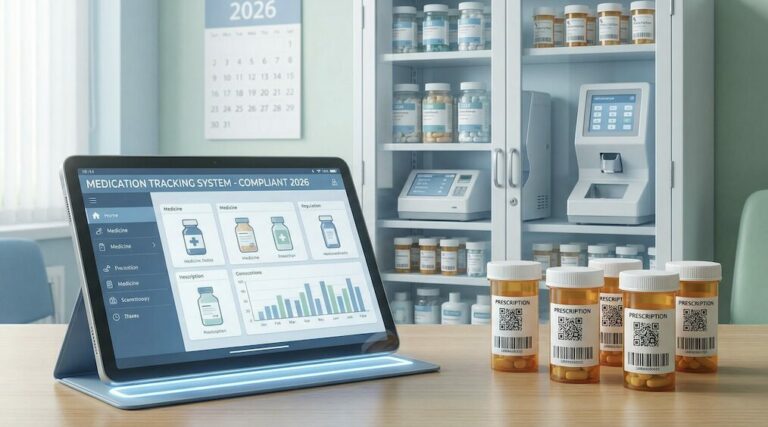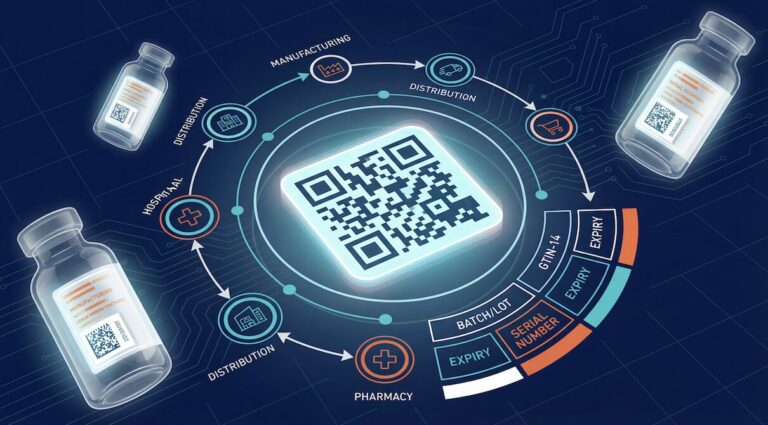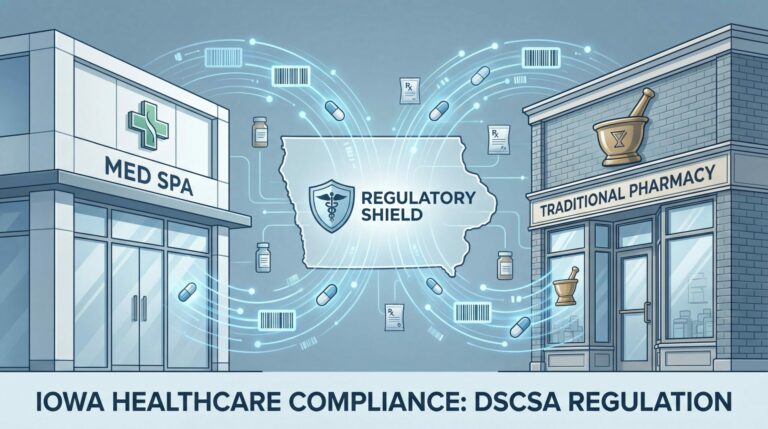The Drug Supply Chain Security Act mandates the prescription drugs be serialized by November 2017. However, the DSCSA and other serialization regulations are complex and suggest far-reaching consequences and costly upgrades. To simplify the complexity to a certain extent, we can break down the deadlines in smaller milestones. The Food and Drug Administration program, when laid out in pieces, can help us identify these milestones, and perhaps, even see some hidden liabilities.
November 2017 – Serialization Deadline for the U.S.
Everyone in the U.S. drug supply chain knows about this one, and unless the current administration issues an administrative freeze, or the FDA grants a waiver or delays the deadline, all pharmaceutical companies and CMOs have to deploy serialization full-scale by the beginning of November 2017. Some industry actors rest assured the deadline will be delayed because the serialization readiness is far from complete industry-wide. Nonetheless, eight months from now all prescription medicines aka RX products must be serialized.
Note: all homogenous cases must be serialized, too.
November 2017 – Wholesalers Beware of Hidden Liability
DSCSA, as many complex regulations, has implicit and explicit requirements, and one of such hidden November 2017 deadlines affects wholesalers. Some regulations in the drug supply chain’s DSCSA may be addressed directly to manufacturers, and so manufacturers prepare. However, when we look at how the same regulation affects the wholesalers, we can see the wholesalers are liable just as much. Smaller wholesalers may easily overlook these less obvious deadlines. In the meantime, the said deadline is approaching, and unless you are one of the three big wholesalers you might have missed that one detail.
A case in point – wholesalers’ ability to receive the product tracing information, the so-called 3 Ts (transfers, transactions, and trading partners), in electronic format by November 2017.
The direct DSCSA mandate is for the manufacturers:
‘‘(C) ELECTRONIC FORMAT. —‘‘(i) IN GENERAL.—Beginning not later than 4 years after the date of enactment of the Drug Supply Chain Security Act, except as provided under clause (ii), a manufacturer shall provide the transaction information, transaction history, and transaction statement required under subparagraph (A)(i) in electronic format”
Explicitly – for manufacturers, yet implying wholesalers because if manufacturers must send the product tracing in electronic format in 2017, wholesalers must be able to receive the Transaction History, Transaction Information and Transaction Statement in electronic format accordingly. Even though their respective deadline is 2019.
Most big wholesalers have already met this requirement, but the small- and medium-size businesses are still using the paper-based product tracing (packaging slips, invoices). All pharma supply chain partners, including wholesalers big and small, are liable for failing to meet this requirement after November 2017. This requirement places distributors in a difficult position, and perhaps we might see some regulatory updates requiring full aggregation and transfer of aggregated data long before 2023.
Needless to say, wholesalers have busy compliance schedules ahead:
- 2017 – electronic product tracing
- 2019 – trade serialized Rx, verify suspect products by SN ID, returned SN products
- 2023 – fully interoperable SN exchange, sunset transaction history
2023 – Data Exchange and Full Unit Traceability
By 2023, DSCSA mandates full unit level traceability and data exchange, wrapping up the long journey of DSCSA implementation. Even though the deadline is 2023, the impact on other participants in the drug supply chain can have effects before 2023, just like in the case with 3Ts liabilities.
A Moving Target
In a recent serialization readiness survey, one participant said global serialization compliance is a moving target referring to changing regulations in some countries. The U.S. regulatory climate might spell change regarding DSCSA, too, because the FDA has scheduled to release nine guidance documents. Hence, we might expect some clarifications that might accelerate certain deadlines, or affect trading partners in some other way. Here are the scheduled FDA guidance documents:
- Grandfathering Policy for Packages and Homogenous Cases of Product Without a Product Identifier (for pharmaceuticals without product identifiers that are in the supply chain after the serialization deadline is due).
- Identifying Trading Partners under DSCSA.
- Product Identifier Requirements under DSCSA – Compliance Policy.
- The Product Identifier for Human, Finished, Prescription Drugs (questions and answers regarding SNI and other serialization data, as well as barcode carriers).
- Standardization of Data and Documentation Practices for Product Tracing.
- Verification Systems under DSCSA for Certain Prescription Drugs.
- Information on How to Apply for a CDER Certification of Pharmaceutical Product (CPP) Export Certificate.
- Waivers, Exceptions, and Exemptions from the Requirements of Section 582 of the Federal Food, Drug, and Cosmetic Act.
- Fees Incurred Under the DSCSA.
- Repackaging of certain drug products by pharmacies and outsourcing facilities.
Four of these were due in November 2015, and when published, they could have a serious impact on how some manufacturers approach the full serialization of prescription drugs deadline in November 2017. The industry is looking forward to these documents. Yet, the FDA has not been overly active since President Trump took office. It could be that the new administration is taking its time to appoint the new FDA Commissioner, but it could also have something to do with the Executive Order enacted by President Trump recently. The agencies now need to eliminate two regulations for every new one. A 60-day freeze was ordered on all new regulations. It could be the case that the FDA guidance documents we are waiting for might be viewed as “regulations,” so the FDA would need to repeal eight old guidelines before publishing at least four new ones.
Until any of these speculations are confirmed, and even if you hope the deadline will be delayed, the November 2017 requirements remain mandatory. Therefore, your serialization implementation strategy must be ready by now. You and your trading partners need to test the solution and have time for identifying issues and troubleshooting if DSCSA compliance is on your agenda.
About TrackTraceRx Suite
Other solutions on the market today are totally fragmented by only providing one piece of the puzzle. Pharmaceutical companies today are stuck subscribing to multiple services, accessing different companies for support and paying thousands of dollars to integrate different systems. The TrackTraceRx Suite is a game changer by combining the TrackTraceRx Traceability Solution, a ERP, and a Commerce Platform completely integrated out of the box. This eliminates having to deal with multiple support, feature services and integration costs.




